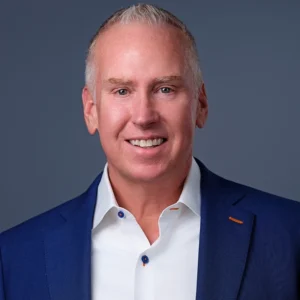Are you spread too thin? Do you feel like you’re spinning your wheels? You may be a victim of the Paradox of Success.
It was Socrates who said, “Beware the barrenness of a busy life.” I remember as a child observing my parents, and as I reflect back on those days, a piece of me longs for the simplicity.
My father was a very successful entrepreneur. Born in 1927 and growing up dirt poor in Chicago following the Great Depression, my father went on to build multiple successful businesses, chair multiple boards and foundations, and was honored both with the High Point University baseball field carrying his name and being voted High Point, North Carolina’s 1987 Citizen of the Year. He was a great philanthropist and accomplished a great deal.
But every evening he would come home from work around 6:00 pm and watch the news. At 7:00, we would have dinner at the dining room table as a family…and talk. We traveled often. In the summertime after dinner, he and I would throw the baseball or football until dark, and in the winter months, we would watch TV as a family or just talk. He never stayed up late working after I went to bed. He never missed a game because he was too busy. Success did not require busyness in the 1970s and 80s—nor does it need to today.
I recently turned 49. He was 44 when I was born. In the passing of a generation, so much has changed. Our work follows us home because we are constantly connected. If we don’t make an effort, our family time is overrun by screens. Even on our weekends, we get lured into checking email. And with our family, we rarely, as Mr. Miyagi said in Karate Kid, “Look eye!”
Henry David Thoreau once wrote, “I do believe in simplicity. It is astonishing as well as sad how many trivial affairs even the wisest thinks he must attend to in a day…” Touché.
The Paradox of Success
In his book Essentialism: The Disciplined Pursuit of Less, author Greg McKeown describes a “paradox of success.”
With success come opportunities and more options. But these options and opportunities often distract us and lure us away from what is truly vital in our life. Oh the temptations…I have heard their siren songs many times, and wrote about it in my Amazon Best Selling book, RISE: The Reincarnation of an Entrepreneur. Our clarity begins to fade. We take on too much and find ourselves juggling too many things. No longer able to go a mile in one direction, we find ourselves fighting to go barely an inch in a million directions.
Ultimately, our success becomes the foundation of our failure.
Less but Better
Finding your way to a life based on the idea of less but better will yield three significant outcomes: more clarity, more control, and more joy.
More Clarity
One way to begin the process of shedding the things that have become distractions is to think about the handful of things in your life that are truly vital. For me, it is time with my wife, connection with my adult sons, travel, time for health and fitness, time for living my faith, and time for helping others. What are yours?
Once you know the answer, you can begin to make a list of all the things you pack into a day, a week, a month, and a year. Of the things on that list, which of them actually increase your capacity to spend time on what is vital and which things on the list detract from the same? Start small, but start. Begin the process of saying “no” and shedding the things that are taking away from your time to focus on what is vital.
When you do this, as Greg McKeown says, “Every day it becomes more clear than the day before how the essential things are so much more important than the next most important thing in line.”
More Control
As you continue to shed the distractions, you will find that fewer people have control over your time and your life, and instead, you become increasingly in control. If you don’t prioritize your life, someone else surely will.
More Joy
When you are able to focus with clarity on the handful of things that are vital in your life, you will find yourself more focused in the moment. Free from distraction, you will be able to live life more fully. It was the Dali Lama who wrote, “If one’s life is simple, contentment has to come. Simplicity is extremely important for happiness.”
I think he is right.
Next Steps
Learn more about how Next Level Growth can help you and your organization clarify, simplify, and achieve your vision. Schedule a discovery call to see if Next Level Growth is a good match for your organization.
Written by Michael Erath, Certified Scaling Up Coach, Pinnacle Business Guide &
Former Record Holding Certified EOS implementer®



